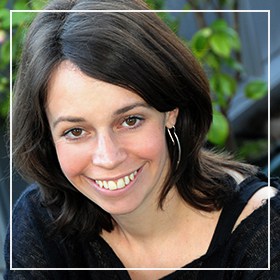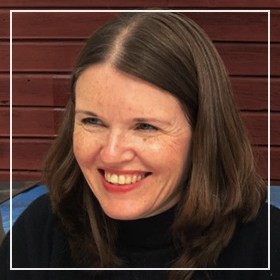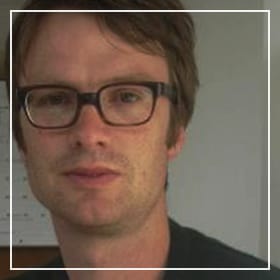This is part two of our virtual Meeting on Meeting. Read the Minute of our First MoM here.
Date: 12 July 2017
Chair: Julie Billaud (JB), Director of Stuff, Allegra Lab
Participants:
- Renita Thedvall (RT), Stockhom University
- Jen Sandler (JS), University of Massachusetts, Amherst
- Hannah Brown (HB), Durham University
- Adam Reed (AR), University of Saint Andrews
- Thomas Yarrow (TY), Durham University
Purpose of the meeting: Discuss two recent publications on ‘meeting ethnography’:
- Thedvall and Sandler (2017). Meeting Ethnography: Meetings as Key Technologies of Contemporary Governance, Development and Resistance. Routledge.
- Brown, Reed and Yarrow (April 2017). Meetings: Ethnographies of Organizational Process, Bureaucracy, and Assembly. JRAI. Vol 23 (S1).
Agenda:
- Unpack the nature of meetings’ power: Both volumes build on Foucault’s theory of governmentality to highlight the double-edged nature of meetings, i.e their tendancy to reproduce hierarchies but also their potential for constituting power in new terms. How would you describe the nature of meetings’ power?
- Explore the ethics of meetings: Participating in a meeting implies a tacit knowledge of their rules and etiquette. What is the ethos fostered in meetings? What are the contradictions and tensions that such ethical expectations produce?
- Provide insights on meetings’ ontology: JS and RT conceive meetings as ‘infrastructures’ that facilitate or enable practices of circulation of people, things (documents) and ideas. HB, AR, TY emphasize the ways meetings constitute time in specific ways, building on previous meetings’ conclusions to imagine ‘a way forward’ for example. These findings seem to imply that ‘meetings’ are organizational systems with a life of their own. How would you define meetings’ ontology?
- OAB
Minute of Meeting:
1. Unpack the nature of meetings’ power: Both volumes build on Foucault’s theory of governmentality to highlight the double-edged nature of meetings, i.e their tendancy to reproduce hierarchies but also their potential for constituting power in new terms. How would you describe the nature of meetings’ power?
JS and RT: Much of the nascent anthropology of policy is strongly Foucauldian, and perhaps because we were both influenced by that literature we began our inquiry into meetings through that lens. Meetings are productive and reproductive, yes; this was also Schwartzman’s fundamental insight during the rise of poststructural analysis. But meetings are both more and less than this. They are structural, in the literal sense of organizing the time and space of organizations. They shape interaction. But we don’t think they are simply structural. We use the term “architectural” to show that the way meetings structure organizations and other projects involves explicit design elements — the aesthetic as well as functional conditions of each meeting. These elements are generally accessible (visible, if not malleable) to participants. Furthermore, the notion of architecture implies an architect.
Of course, Foucault resisted articulating any strong notion of agency. But we cannot ignore that many of the people we have worked with in our diverse field sites are deliberately designing meetings in a certain way in order to do something. Ethnographic encounters with meeting-saturated worlds find discussions of design everywhere. Meetings are not crude exertions of raw agency, however; what is designable is clearly a product of the context outside the meeting (political economy, language ideology, etc.). Yet meeting design is also a place where people try to affect — indeed, produce and reproduce — aspects of those contexts. “Calling a meeting” is an agentic act. Designing a particular meeting or a particular way of meeting, which is what many of the people in both of our field sites do, is an attempt to exert agency over structure in a quite explicit way. We’ve found this approach to meetings a fruitful way to engage anew — and beyond Foucault, in a way — with the topic of agency.
On the flip side of taking seriously the design of meetings, we also recognize a particular form of agency on the part of the meeting itself. Meetings in our view are also “makers” — they produce things. This is obvious, in a way. Many of the anthropologists in our various meeting-meetings have expressed some version of “I didn’t really focus on the meeting exactly, even though meetings were everywhere in my fieldwork.” What did they focus on, then, if it wasn’t the very thing they were doing? They focused on what the meetings made, of course: the changes in affect, the shifting of alliances, the opening of space for a policy or project to grow, the narrowing of a discourse. These are all things meetings can make. So it is not just that people make particular forms of meetings possible and happen; meetings also make. We thus do not think that anthropologists who are focused on meetings will ultimately step completely outside the “productive/reproductive/possibility” dynamic that characterizes Foucauldian approaches.
Yet it feels interestingly new to come at such themes in a way that is grounded in something so many people do every day, to interrogate contemporary power through an extraordinarily widespread, highly consequential, and yet somehow taken-for-granted everyday experience. At the same time, this approach also feels interestingly old. Seeking to understand human difference has always involved seeking universal human experiences (e.g. family, language), and interrogating differences among and through these. Contemporary meeting ethnography is different than classic approaches to such things as kinship, of course, for (at least) two reasons. First, anthropology is now deeply engaged in discussing its own fraught relationships to colonial, neocolonial, and perhaps post- or anti-colonial projects. Second, meetings also have a fraught and debatable relationship with colonial, domination, and (arguably) resistance and “alternative world-making” projects. Such newness, echoes of the old, and the tensions entailed make meetings feel, to us, like the most exciting thing to think about right now!
TY: Studies of bureaucracy and organisation have drawn a lot of inspiration from Foucault, with good reason. Renita and Jen have already outlined some of these. It’s probably fair to say that the contributors to our volume have engaged more and less directly with this legacy. From my own perspective I have a problem that is less to do with Foucault’s own work than the sometimes flat-footed ways it gets applied to these contexts. This returns me to the point that we need to start from the ethnography, in this instance to point out that a lot of work in this area seems over-determined by Foucault and his attention to power (persuasive as this is). I don’t think I’m the only contributor to our volume to have been inspired by recent work in the anthropology of ethics which orients analysis to some dynamics that have not had so much attention in these contexts: in particular, how do people encounter and resolve competing and contradictory imperatives, and how are these driven by different conceptions of what is ‘good’ and ‘right’.
AR: Building on this last point by Tom, it might be that it is the late Foucault of ethical subjectivation that could as productively be linked to the study of meetings. For me, some of the most crucial and deceptively commonsensical questions that circulate in and around many bureaucratic meetings are ‘who is meeting’ and ‘who is acting’? Such questions also take us away from a Foucaultian emphasis and perhaps more towards the legacy of Weber; at least in the manner in which Weber has been re appropriated in the new anthropology of bureaucracy. In particular, I was taken with the way some in the anthropology of Christianity have begun to explore forms of Pentecostal bureaucracy, where meetings appear to comfortably merge charismatic power and mundane routine.
HB: My own work has explored the ways meetings are employed in changing forms of developmental governance, and has been heavily influenced by Foucaultian understandings of governmentality. But I’m inclined to agree with Adam that the question, ‘How would you describe the nature of meetings charisma?’ is at least as interesting and important, and perhaps more so, as questions about the power of meetings as understood in Foucaultian terms. As Adam’s response to the question below suggests, understandings of charisma may partly help to explain why this form of organising has become so ubiquitous.
2. Explore the ethics of meetings: Participating in a meeting implies a tacit knowledge of their rules and etiquette. What is the ethos fostered in meetings? What are the contradictions and tensions that such ethical expectations produce?
JS and RT: We want to develop the capacity for this comparative meeting ethnography project by putting forth an analytical/theoretical framework for researching and understanding meetings across contexts. There is not one particular ethos fostered in meetings. This is precisely why we need to investigate meetings ethnographically.
AR: Yes and no, I think. The contributors to our respective volumes clearly demonstrate divergences in meeting form, action and context. However, for me the sense remains that ethnographic subjects in diverse locales do seem to identify a fairly recognisable common form that exhibits widely familiar features (the prisoners I worked with in Papua New Guinea insisted on appointing office-holders such as ‘secretary’, ‘president’, ‘vice president’, respecting the ‘chair’, following an ‘agenda’ etc). Furthermore, it is that claim to a kind of universal bureaucratic status that in part makes these meetings important and satisfying: i.e. many ethnographic subjects want to insist they are following a globally recognised form and procedure, and that in some way obedience to that form elicits relations, both between those who participate in diverse meetings, in different times and places, and between the meetings themselves as kinds of event.
3. Provide insights on meetings’ ontology: JS and RT conceive meetings as ‘infrastructures’ that facilitate or enable practices of circulation of people, things (documents) and ideas. HB, AR, TY emphasize the ways meetings constitute time in specific ways, building on previous meetings’ conclusions to imagine ‘a way forward’ for example. These findings seem to imply that ‘meetings’ are organizational systems with a life of their own. How would you define meetings’ ontology?
JS and RT: To clarify, we were inspired by the infrastructure debate and think of meetings as architecture and practices of circulation. But we added a dimension, meetings as makers (see extended response above).
AR: I am not sure we really dwelled on the ontology of meetings. But re my comments on the ways in which bureaucratic meetings are sometimes prized for their universal status, one might say that the example of meetings throws up interesting challenges to an attempt to ontologize either difference or similitude. Yes, we can insist upon the difference that context makes for the description of meetings, but we need also to take seriously the consistent claim that participants in those meetings.










